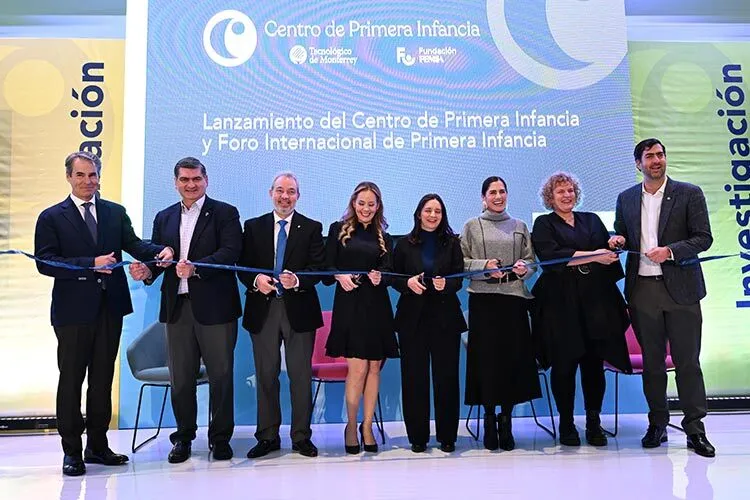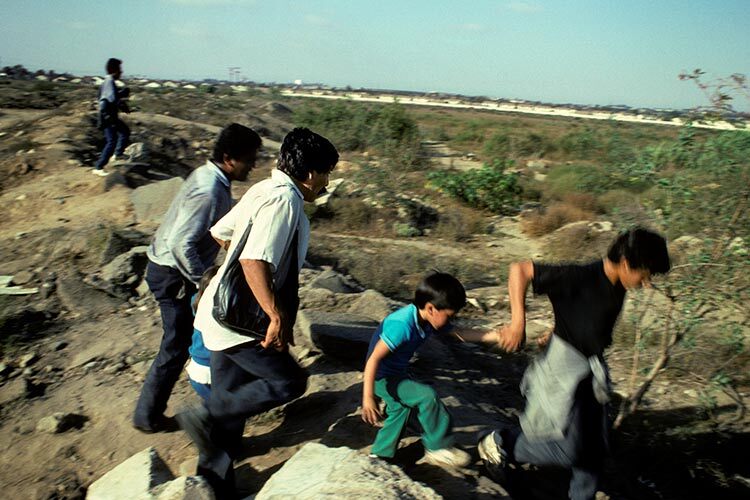To ensure that children around the world live a dignified, healthy and fulfilling early childhood, we need to ensure that the most important adults in their lives –such as their parents, caregivers or teachers– have the appropriate economic, psychological and social conditions to be able to provide them with good care.
In the United States, 48% of parents report that most days their stress is completely overwhelming, compared with 26% of adults without children who reported the same.
According to Philip Fisher, director of the Stanford Center on Early Childhood, understanding how parents and caregivers live is essential to guide intervention programs and public policies that can help them provide adequate care.
“We think that it is very important that, as experts, we incorporate the experiences of what people in the lives of young children are living,” said Fisher.
This is why, during the Covid-19 pandemic in 2020, Fisher and a group of researchers created RAPID, a survey aimed at understanding the needs of parents and child care providers.
During his presentation RAPID Survey Project: A project to amplify the voices of caregivers, at the second International Early Childhood Forum of Tec de Monterrey, Fisher explained what is the most relevant information they have found and how it can be used to design programs and policies that truly have a positive impact.
“The idea is that this pieces of information should be incorporated into this knowledge cycle to really inform the design of solutions and to be able to determine whether they are having the desired impact,” said the expert.
RAPID: A Survey to Understand Stress in Primary Caregivers
In a changing world, there are four major factors that impact the way families, primary caregivers, and children live: changes in out-of-home care (such as preschool or childcare), the persistence of poverty and inequality, climate change, and digital technology, according to Fisher.
In Mexico, only 71% of children aged three to five were enrolled in preschool education in 2022, which is lower than the 83% of children in other that belong to the Organization for Economic Cooperation and Development (OECD).
On the other hand, more than 20 million Mexican children and adolescents live in poverty, while five million do so in extreme poverty.
“This has a collateral effect that impacts nutrition and other factors related to the health of children,” said Fisher.
With this in mind, he and his colleagues created RAPID, a survey with high-quality quantitative and qualitative data, based on a large and diverse sample of people.
The survey takes about 15 minutes and is available in English, Spanish and other languages. It has a high-frequency, with families and primary caregivers responding it on a weekly basis.
So far, they have conducted 159 household surveys in the United States, which includes more than 20,000 families.
The questions they ask parents are about the economic and material difficulties they experience, such as the ability to pay for their children’s food, their rent and other basic needs; the well-being of their children, if they notice they are anxious, angry or defiant; the well-being of the adult themselves, if they have anxiety, depression or loneliness; access to preschool and childcare; as well as access to child preventive health care, such as vaccines.
Teachers and child care providers are asked additional questions about their salary and working conditions.
“We have asked some questions questions about people’s concerns about climate change and other subjects,” said the researcher.
Many Families Cannot Guarantee the Basic Needs of their Children are Met
Among their most important findings is that currently about 40% of parents with children under six years of age in the United States have economic hardship and battle to cover the basic needs of their children.
“When we show this to policymakers, it is sometimes quite a surprise to them that in a country as prosperous as the US we still see this very high rates of poverty,” said Fisher.
According to him, this results in a hardship chain reaction in which financial difficulties cause emotional and psychological distress in parents or primary caregivers, resulting in child emotional and psychological distress.
This is also true for child care providers and preschool or elementary school teachers, who often have low salaries and difficult working conditions.
Thus, the information gathered by RAPID challenge the notions that we usually have about what is needed for primary caregivers to be able to provide the best possible care to children.
We may think parents need to learn about child development or develop appropriate parenting skills, but, in reality, what caregivers say they need is entirely different.
“Parents have told us that they are struggling,” Fisher said. “They are not saying please help me with parenting skills, they’re saying I’m worried about whether I can continue to live where I’m living.”
In addition, among the many difficulties they face are feelings of loneliness and hopelessness, having to skip meals so their children can eat, not being able to afford daycare or not being able to take time off work to take their children to the doctor.
An Essential Piece for Early Childhood Well-Being
That’s why Fisher believes it’s essential that we first create programs focused on ensuring that all families worldwide, child care providers, and preschool and primary school teachers can meet their basic needs.
“The programs we develop around this issues are not necessarily aligned with what parents are telling us,” Fisher explained.
Creating these programs is especially important for families living in poverty or facing inequality.
“If what people are telling us is that their own struggles, and therefore those of their children, are directly tied to these very basic, fundamental needs for survival, we need to be thinking about that,” he said.
However, the idea that solving these financial issues will solve everything is not the message they want to give. “We have to start with understanding whether people’s basic needs are met before these wonderful, and in many cases evidence-based, social programs can have the desired impact,” Fisher emphasized.
In the future, the researchers seek to expand the survey to other countries. One of these alliances will be with the Center for Early Childhood at Tec de Monterrey to begin collecting information on the needs of primary caregivers in Mexico, starting with those in Nuevo León.
Were you interested in this story? Do you want to publish it? Contact our content editor to learn more marianaleonm@tec.mx
















